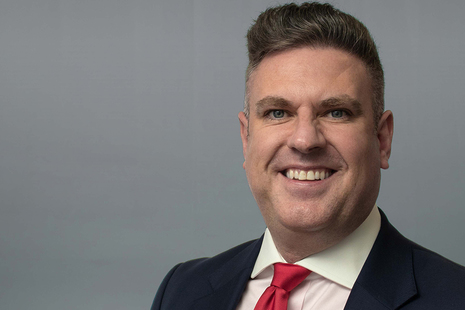Charities are being warned of challenges ahead in engaging with local authorities now run by Reform UK due to the right-wing party’s ‘anti-woke’ agenda.
The warning has been made by James Somerville, head of policy at think tank New Philanthropy Capital (NPC), who said that “echoes of the anti-woke, anti-DEI agenda that we have seen in the US have come through strongly from Reform UK”.
Charities focused on these issues, “as well as climate change, may find engaging with Reform-led councils more challenging than engaging with council with other parties in charge”.
Following the local government elections this month Reform control 10 councils, is the largest party in a further four and has two strategic mayors, in Greater Lincolnshire and Hull & East Yorkshire.
Already in West Northamptonshire Council councillors in the ruling Reform group have refused to attend any diversity or climate training.
Challenging accommodating asylum seekers in hotels and axing net zero policies are among other policies backed by Reform, which has also said it wants to make cost savings across councils
Somerville points out that in practice cost cutting may prove difficult due to existing budgetary pressures facing many councils.
“This means that they will likely already be prioritising statutory services like social care and homelessness support,” he said.
“It is not clear where Reform UK expect to make significant savings from already stretched council budgets, beyond cuts to DEI and net zero.”
However, he warns that “the prospect of local authority funding drying up” for charities in Reform run areas “could be a serious concern”.
This could also be a concern for funders who find themselves backing charities that “are not able to engage with councils to fulfil their role effectively”.
Opportunities
But there are also potential opportunities for charities looking to secure funding and support for their cause in Reform run areas, Somerville adds.
Many Reform voters are not solely motivated by concerns around immigration and Brexit, he says, and have similar priorities as many charities particularly around the economy, winter fuel allowance for older people and the cost of living.
He also points out that Reform policies are still divisive, with half the electorate telling a recent YouGov poll that they would never consider voting for the Nigel Farage led party.
Also “a large portion of the public are very opposed to them”.
He concludes that the popularity of Reform among voters at this month’s council elections points to a “wider fragmentation of politics and a move away from a two-party system”.
“This means that how the sector interacts with government and politics, at all levels, will change. Reckoning with the rise of Reform UK is just one part of that,” Somerville says.
Latest News
-
X-odus sparks video content boom among charities, report finds
-
Charity handed £25m endowment from autistic philanthropist to help others with the condition
-
Civil Society Covenant blighted by delays and U-turns, report warns
-
More than 30 jobs at risk as hospice charity looks to close home care service
-
Cranfield Trust: A guide for charity leaders on navigating local authority devolution
-
Friday funding roundup - 20 February
Charity Times video Q&A: In conversation with Hilda Hayo, CEO of Dementia UK
Charity Times editor, Lauren Weymouth, is joined by Dementia UK CEO, Hilda Hayo to discuss why the charity receives such high workplace satisfaction results, what a positive working culture looks like and the importance of lived experience among staff. The pair talk about challenges facing the charity, the impact felt by the pandemic and how it's striving to overcome obstacles and continue to be a highly impactful organisation for anybody affected by dementia.
Charity Times Awards 2023
Mitigating risk and reducing claims

The cost-of-living crisis is impacting charities in a number of ways, including the risks they take. Endsleigh Insurance’s* senior risk management consultant Scott Crichton joins Charity Times to discuss the ramifications of prioritising certain types of risk over others, the financial implications risk can have if not managed properly, and tips for charities to help manage those risks.
* Coming soon… Howden, the new name for Endsleigh.
* Coming soon… Howden, the new name for Endsleigh.
Better Society

© 2021 Perspective Publishing Privacy & Cookies














Recent Stories